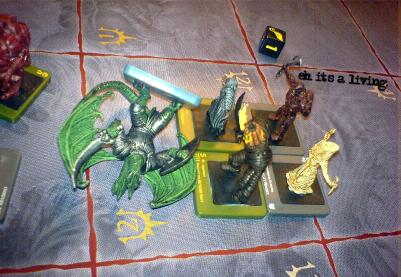 |
|
 |
||||||
Religion: |
||||||
God gives man free will, perception, and reason so that he can choose between good and evil. His soul goes to heaven or hell depending on his choices.
The above two sentences express a sort of folk religion in the US. Even among those who don’t believe exactly this formulation, the pattern holds. The Jehovah’s Witnesses, for example, say there’s no hell, but there is a judgment after death that determines one’s eternal fate. My short sketch of eschatology isn’t universally accepted, but it’s mostly representative. It makes sense to the average member of US culture.
It also made sense to people living 2000 years ago.
All these concepts -- free will, soul, God, etc. -- were invented a long time ago. The people who came up with them had no idea what atoms, neurons, DNA, and evolution are (with some exceptions). They didn’t understand how subsystems in the human brain construct vision and other sensations. How can people take these concepts seriously when they come from a time when crystal spheres, phlogistons, slavery, creationism, and bodily humors made sense? How does a millennia-old concept of free will square with recent research into human genetics and behavior? It’s not so much that free will and genetics contradict each other. The situation is starker than that. Free will is about these imaginary things that happen to this imaginary thing and genetics is about these real things that happen to real things.
Ditch that old-time religion and rethink everything.
—JoT
1. Epicurus taught that the world is ultimately based on the interaction of swerving atoms. Not coincidentally, he also taught that the gods do not reward or punish humans, that there is no afterlife, and that you might as well make the best of it while you’re here. [back]
top |
||||||